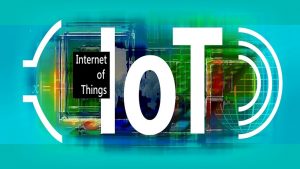
The strategic partnership for “IoT made in Germany” allows both parties to enter the emerging multi-billion international IoT market. By pooling expertise and resources, the two will expand their presence across the United States, Germany and wider European markets.

Adel Al-Saleh, CEO of T-Systems and Board Member of Deutsche Telekom, said: “We’re delighted to be extending the reach and capabilities of our Cloud of Things IoT platform alongside our partner. Software AG’s technology is critical in enabling us to scale an already successful service. It also introduce new functionality, giving us the confidence to move into new sectors. Our strategic partnership will help us continue to drive innovation.”
Sanjay Brahmawar, CEO Software AG, said: “This is a new way of partnering and co-operating to offer complete IoT solutions. With Deutsche Telekom as our strategic partner, we will offer the most competitive platform! Customers can simplify their IoT and integration needs with self-service analytics and gain insights to accelerate their businesses for the fully connected future. We look forward to scaling this partnership and making it a global success.”
Support of mission-critical applications
T-Systems will use Cumulocity IoT’s connected architecture as the new foundation for its integrated Cloud of Things IoT platform. Cloud of Things is the backbone that supports a vast range of mission-critical customer applications, starting small but scaling fast. It allows companies to remotely monitor, manage and control their connected devices and machines. The platform provides insight that cuts costs, boost efficiency, increase security and create new value by converting data into intelligence.
Internet of Things – start small, scale fast
DT and T-Systems will be able to service a much larger and more varied global market. Cloud of Things will now operate within a multi-cloud environment. According to the company, this gives it greater ability to scale quickly with customer demand and expand its capabilities.
The platform has many new functional extensions, including Streaming Analytics, Micro Services and new protocols. These improvements will support the power of its integrated platform, tapping into new industries such as the smart home sector.
Software AG has recently been named a Visionary in the Gartner Magic Quadrant for Industrial IoT Platforms. The strategic global partnership with Deutsche Telekom reinforces their expertise in IoT capabilities. The partnership allows both parties to expand their presence across the emerging IoT market throughout the US, Germany and Europe.
Enterprise Times: What this means for business?
There’s so much hype about the IoT. But to tell the truth, the emergence of IoT still appears a bit piecemeal, a bit ‘hit and miss’. And yes, we’ve heard and read about the digital oil field connects the drill bit to the chairman’s office. The manufacturer that unified its connected equipment solution or the trend to bring medical therapy home to increase treatment accessibility. These early IoT pilots appear to be the exception, rather than the rule.
A few months ago, Deutsche Telekom announced a co-operation with logistics company Rhenus on the development of the smart bin. Essentially, it appears that IoT is still being explored within the business-to-business arena. It’s more likely that IoT to the mass-market is waiting for the roll-out of 5G. Analysts say that 5G will be crucial to the rise of autonomous cars. These cars will need a constant low latency connection to the internet – and to one another. 5G will also be essential for remote surgery, with doctors controlling medical robots from across the world. 5G appears to promise the ability to monitor and control robots, drones, and even whole factories remotely and in real time.
Until then, Internet of Things looks likely to be restricted to niche B2B areas such as machine-to-machine communications. Or smart building management (air conditioning control, elevator control, room occupancy measurement. The sexy stuff we see in sci-fi movies is getting closer, tantalisingly close, but is still years, possibly decade’s away.


























